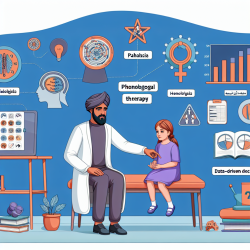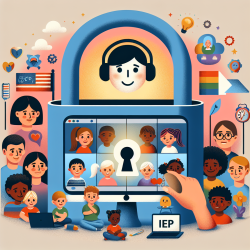As practitioners in the field of nursing, we continuously strive to improve our skills and the quality of care we provide. A recent comprehensive review article, "Nursing care for persons with developmental disabilities: Review of literature on barriers and facilitators faced by nurses to provide care" by Khanlou et al., offers critical insights into the challenges and facilitators nurses encounter when caring for individuals with developmental disabilities (DDs). This blog post will explore the outcomes of this research and suggest practical ways to implement these findings to enhance nursing care for this population.
Understanding the Barriers
The review identified several barriers that hinder effective nursing care for individuals with DDs. These barriers include:
- Lack of specific training and education on DDs
- Communication challenges between nurses and patients with DDs
- Limited resources and support within healthcare settings
- Prevalent stereotypes and biases against individuals with DDs
Addressing these barriers requires a multifaceted approach that includes enhancing education, improving communication strategies, and advocating for better resources and support systems.
Facilitators to Effective Care
Despite the barriers, the review also highlighted several facilitators that can improve nursing care for individuals with DDs:
- Interdisciplinary collaboration and teamwork
- Continuous professional development and specialized training
- Utilization of adaptive communication tools and techniques
- Creating an inclusive and supportive healthcare environment
By leveraging these facilitators, nurses can provide more effective and compassionate care to individuals with DDs.
Recommendations for Practice
Based on the findings of the review, the following recommendations can help nurses enhance their practice:
- Participate in specialized training programs focused on DDs to gain a deeper understanding and develop specific competencies.
- Advocate for the inclusion of DD-specific content in nursing curricula and continuing education programs.
- Develop and implement communication strategies tailored to the needs of individuals with DDs, such as using visual aids or simple language.
- Foster a collaborative approach by working closely with other healthcare professionals, caregivers, and families of individuals with DDs.
- Promote an inclusive and supportive environment within healthcare settings by challenging stereotypes and biases.
Encouraging Further Research
While the review provides valuable insights, there is always room for further research. Practitioners are encouraged to engage in research activities to explore new strategies and interventions that can enhance the care of individuals with DDs. By contributing to the body of knowledge, nurses can help shape policies and practices that lead to better health outcomes for this population.
To read the original research paper, please follow this link: Nursing care for persons with developmental disabilities: Review of literature on barriers and facilitators faced by nurses to provide care.










